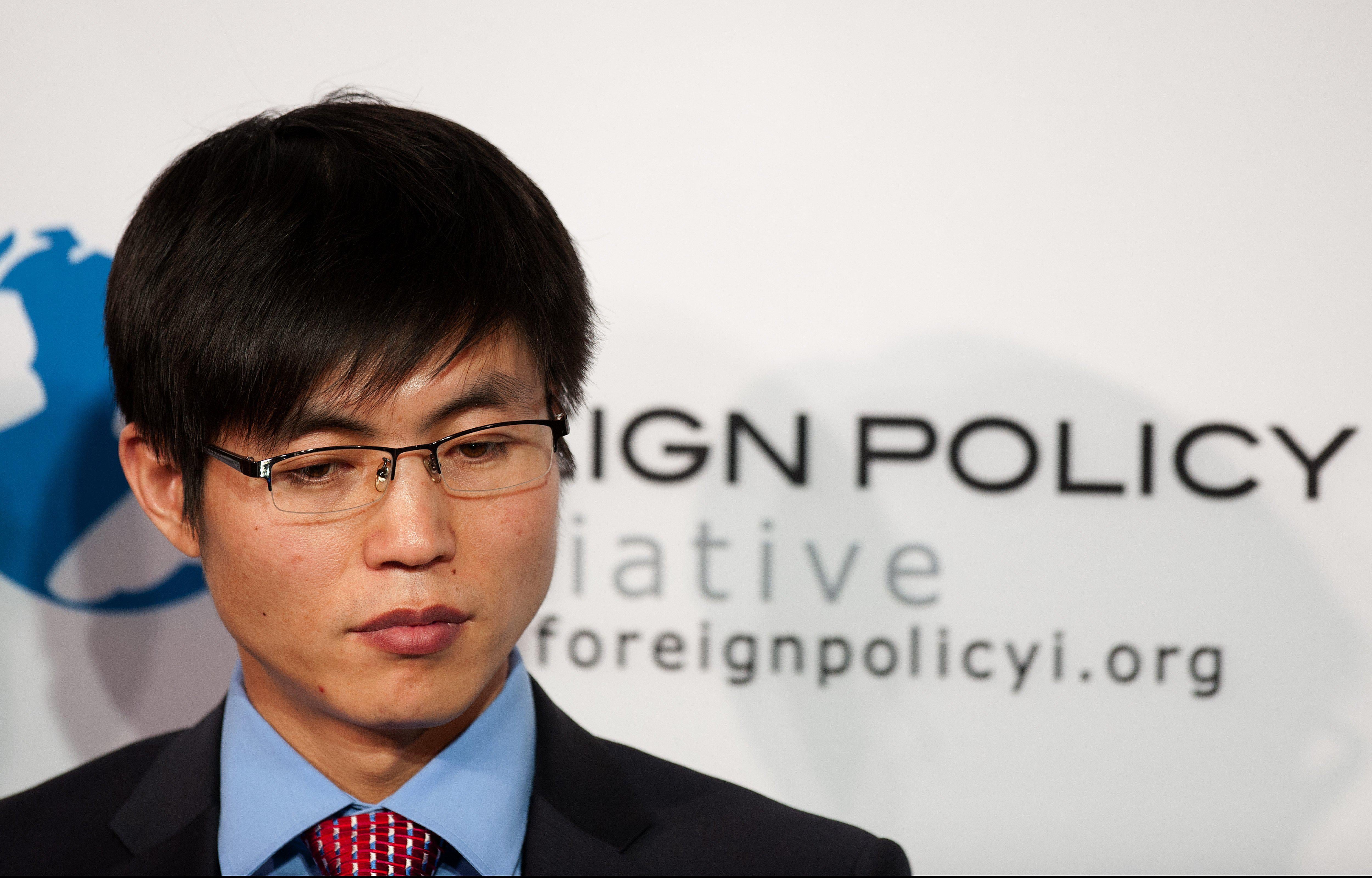The prominent North Korean defector Shin Dong-hyuk this week recanted part of his story of escape from one of the country’s infamous prison camps. Shin’s story was recounted in Blaine Harden’s best-selling book Escape From Camp 14, and he had been one of the most prominent witnesses for the U.N. commission on human rights in North Korea, which issued a scathing report on the country in 2013.
In his previous testimony, Shin told of being born in the infamous, sprawling Camp 14, one of North Korea’s harshest and most secure prison camps, where he lived until escaping in 2005. He is believed to be the only person born in a prison camp to have escaped the country.
Shin now says that some of the events he described actually took place at another camp where he had been transferred for a time. He also now says he had escaped from another camp, Camp 18, two times, once making it as far as China before being sent to Camp 14. Descriptions of torture he claimed he suffered when he was 13, he now says happened when he was 20, following his escape attempt.
Harden says he plans to revise the book and told the New York Times that Shin hadn’t realized that changing some of the details would be a problem. He also says the bulk of the book remains true, including disturbing details such as jailers torturing Shin by slowly lowering him over a fire on a hook. Shin has injuries consistent with torture, and several North Korea experts vetted his story before it had been published.
In an apology on his Facebook page, Shin writes, “We tell ourselves that it’s okay to not reveal every little detail, and that it might not matter if certain parts aren’t clarified. Nevertheless this particular past of mine that I so badly wanted to cover up can no longer be hidden, nor do I want it to be.”
It will certainly be hard to consider Shin a reliable narrator from this point on, even if we take him at his word that he took an understandable if misguided approach to storytelling rather than committing willful fabulism. But does this case tell us anything larger about North Korea?
In an op-ed for the Guardian, Michael Kirby, the Australian judge who headed the U.N. commission on human rights, notes that Shin was one of more than 200 witnesses who testified. Even if Shin were making up his entire story, which seems doubtful, the notion that it should cast doubt on the use of torture by the North Korean government is ridiculous. (Other than the North Korean government, I don’t actually see anyone making that argument.)
Kirby also suggests that the international media is acting as an unwitting agent of North Korean propaganda by focusing its attention on the veracity of Shin’s story rather than on human rights in North Korea. He puts the affair in the same category of distraction as the trivial, and often fictional, news-of-the-weird stories like Kim Jong-un’s uncle being fed to dogs or North Korean men being forced to get Dear Leader’s haircut.
But I don’t agree. If the Shin affair does finally lead to some reflection on the credence given to single-source stories out of North Korea, it can only be a good thing. The reason for the persistence of bogus North Korea news is it’s a place of intense international interest, where no one can do any reporting. Stories from defectors are often taken at face value and spread through re-reporting from the South Korean media to the West. And that’s the best-case scenario: The dog story came from a Chinese parody site.
News outlets feel uniquely confortable running thinly sourced stories or pure speculation about North Korea, given that it’s not exactly possible to travel there to verify. Plus, the North Korean government doesn’t have the credibility to call out the international media for inaccuracies.
We know about the North Korean regime’s use of torture and its network of gulags not because of one defector’s account, but because of the accounts of hundreds as well as satellite imagery. The case is strong enough that problems with one person’s testimony won’t discredit it. That’s unfortunately not the case with a lot of what gets reported about the country.
